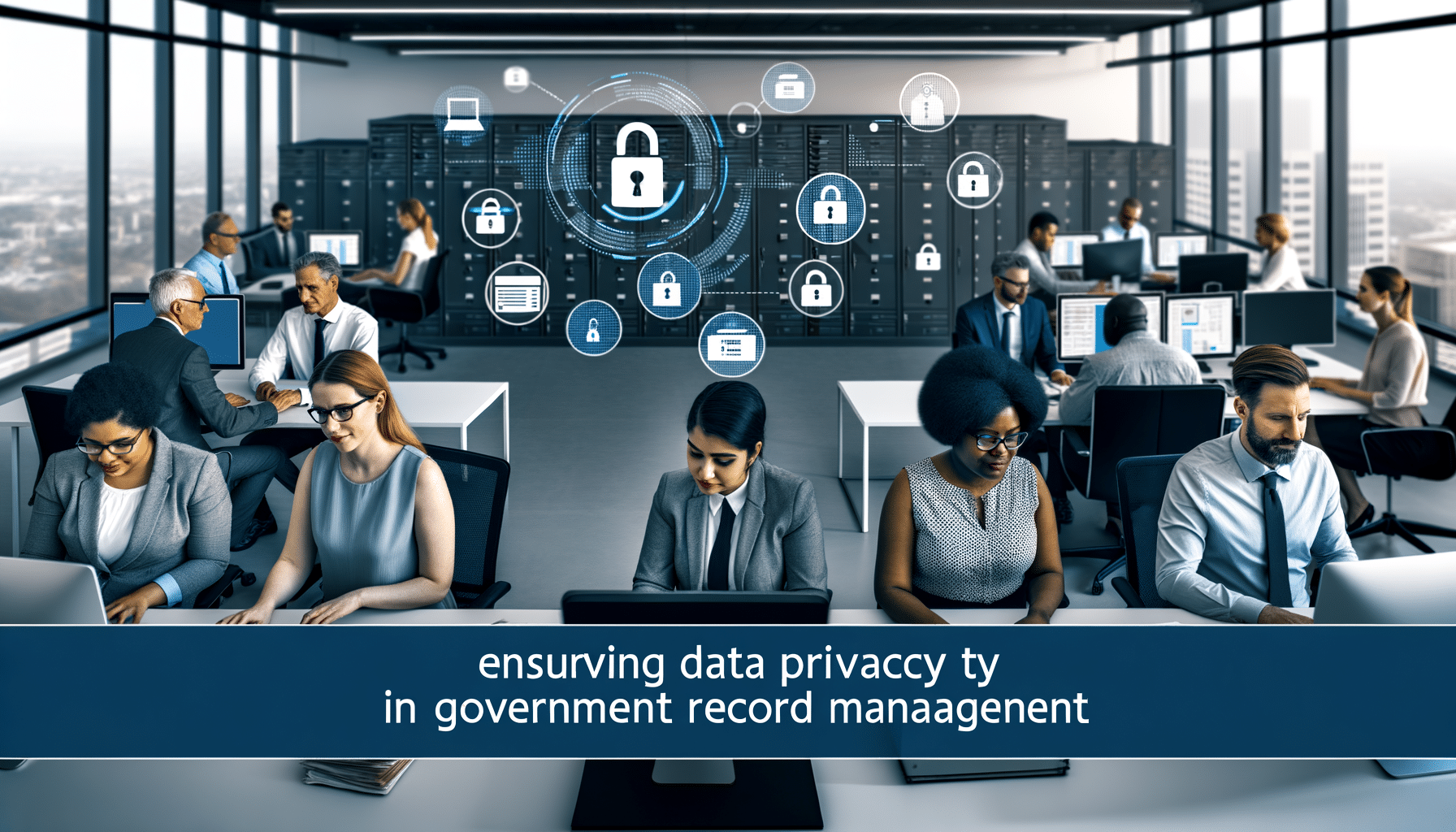Innovating Data Privacy in Government Record Management
In today’s digital age, ensuring data privacy is not just a responsibility but an imperative for government entities. As public trust hinges on how personal and sensitive information is handled, record management practices in government departments must evolve to meet stringent data privacy standards. Today, I want to talk about how leveraging advanced technologies such as AI and blockchain can redefine these standards and provide robust solutions.
The Crucial Importance of Data Privacy in Government
We live in an era where a breach of data privacy can have far-reaching consequences. Government records typically contain personally identifiable information (PII), financial data, and other sensitive content critical to citizens’ privacy. Therefore, lapses in data management not only threaten individual privacy but also undermine citizen trust.
Data breaches in government departments are not uncommon, often resulting from outdated systems, human error, or cyberattacks. This makes it crucial for these institutions to have effective policies and systems in place to protect this information—not just reactively, but proactively.
Harnessing AI for Enhanced Record Management
One of the most effective ways to bolster data privacy in government sectors is through AI-powered automated systems. Such systems streamline the process of categorizing and managing vast amounts of data efficiently and securely.
- Automated categorization: AI can automatically tag and classify records, making them easier to retrieve with natural language processing tools.
- Error reduction: Minimizing manual intervention reduces the probability of human error, ensuring data is classified correctly and maintains compliance.
- Real-time monitoring: AI tools can provide real-time activity tracking, allowing for immediate updates on data access and potential privacy threats.
Blockchain: A Game-Changer for Data Integrity
Blockchain technology introduces an added layer of security by ensuring that the data is immutable and tamper-proof. Government departments stand to benefit immensely from integrating blockchain into their record management systems.
- Immutability: Once recorded, data on the blockchain cannot be altered, ensuring the integrity of government records.
- Decentralization: Blockchain’s decentralized nature reduces the risk of single-point failures, further fortifying data security.
With blockchain, the entire trail of a document’s life from its creation to archiving is transparent and securely tracked, effectively enhancing trust and accountability in record-keeping practices.
Overcoming Implementation Challenges
Introducing these advanced technologies comes with its own set of challenges. However, the benefits far outweigh the initial hurdles. Government departments must be prepared to invest in training and infrastructure adaptation to fully harness these technologies’ potential.
- Costs and resources: Implementing AI and blockchain solutions can require significant upfront investment. However, the long-term savings through improved efficiency and risk reduction are substantial.
- Scalability: These systems need to scale according to the size and complexity of the data, which might require iterative development phases and constant feedback loops.
- Regulatory compliance: Governments must ensure that new technologies comply with existing laws and regulations like GDPR.
The Path Forward for Government Records Management
It’s clear that the integration of AI and blockchain in government record management is not just an option but a necessity. By rethinking their approach to managing records and embracing technological evolution, governments can safeguard their data more effectively than ever before.
For governments everywhere, the stakes are higher than ever when it comes to data privacy. By modernizing their record management systems and embracing AI and blockchain technologies, they can not only ensure compliance and security but also set a new standard in how records should be managed. This is an exciting frontier that fills me with optimism—not just for what it means for government departments but also for every citizen whose trust they seek to win and maintain.
The journey to flawless data privacy in record management may be complex, but with the right technologies and strategies, government entities can certainly achieve it. Let’s move together towards this future where data privacy is not just ensured, but deeply ingrained in our systems.
Conclusion
Ensuring data privacy in government records is a complex but essential task. By adopting AI and blockchain technologies, government agencies can vastly improve how they secure, manage, and innovate their record management processes. As I continue to delve into this challenging yet rewarding field, I invite you to follow my journey and insights on how we can collectively enhance data privacy.
